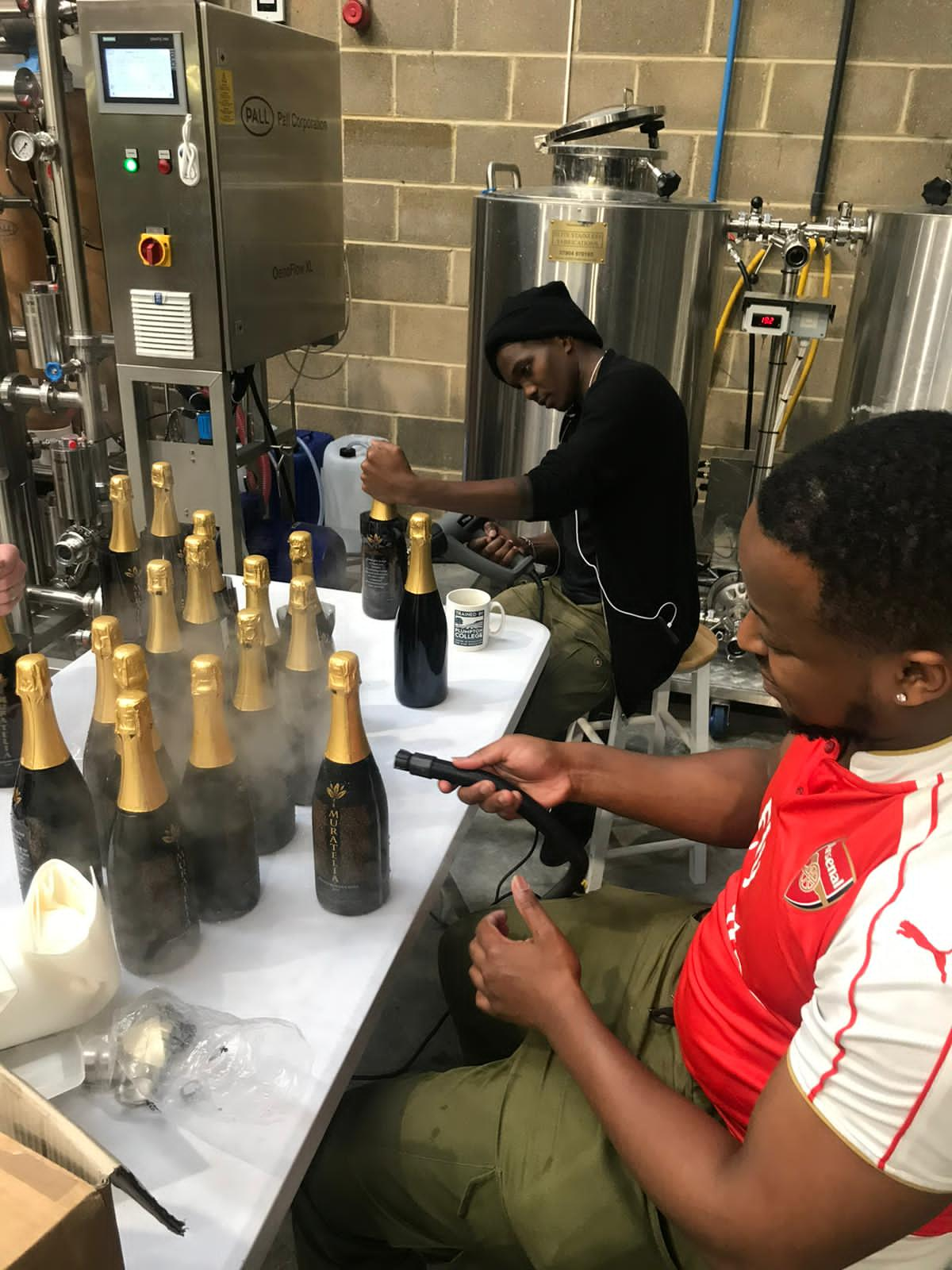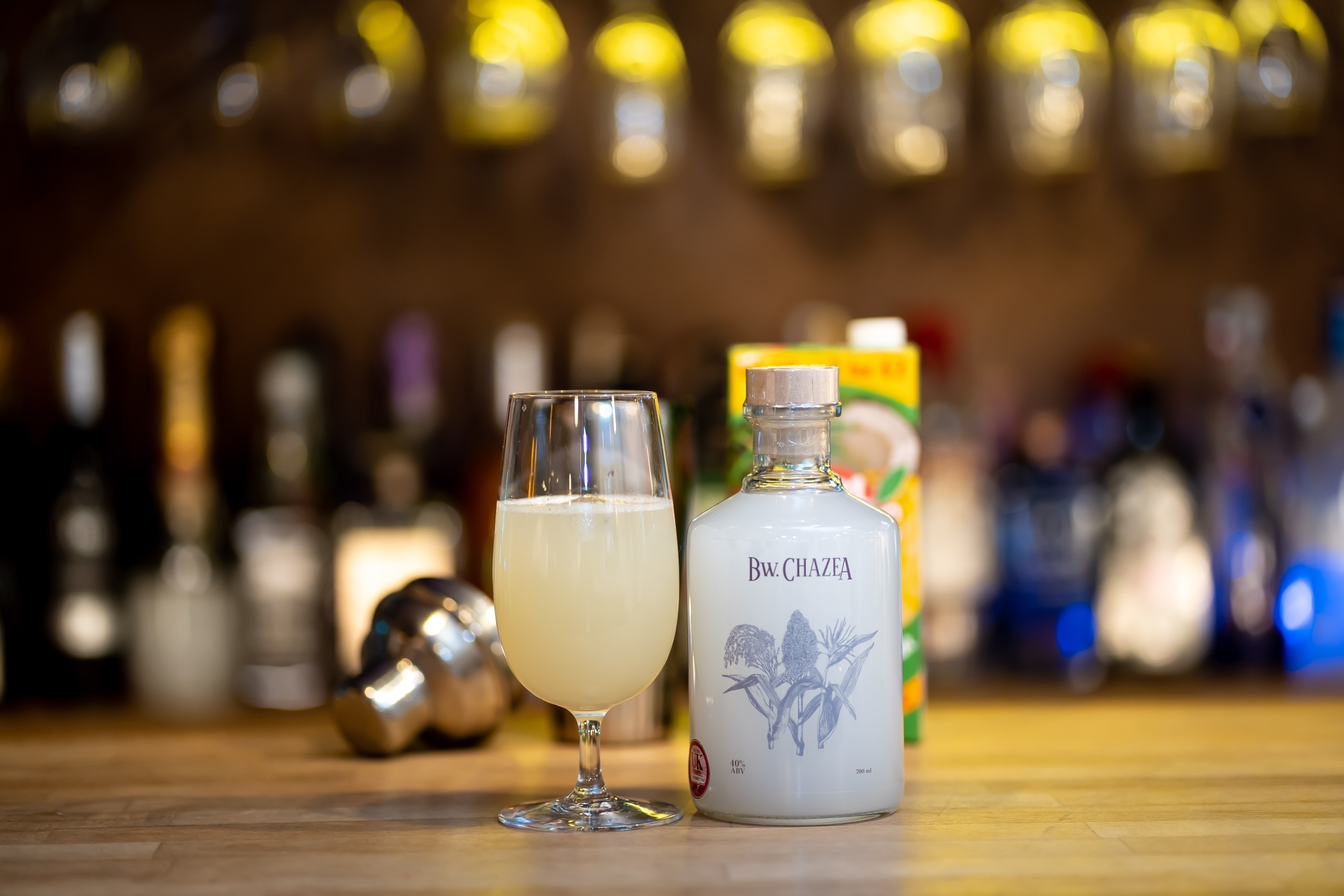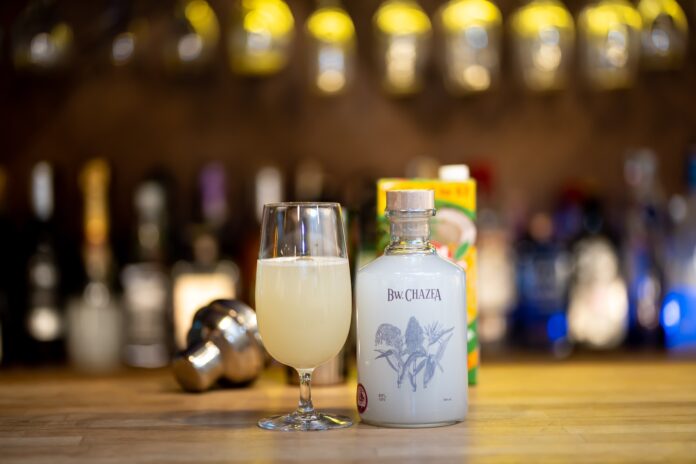By Waridi Ajambo
Nairobi, Kenya: King’ori Wambaki, a Kenyan-born entrepreneur based in the UK, has taken the traditional alcoholic drink, Muratina, and brought it to the world.
This traditional beverage, made from the fruit of the Kigelia Africana, has been passed down through generations in the Kikuyu culture and has played an important role in various social functions such as births, initiations, marriages, and other special occasions.
“My parents were more inclined to tell me about the different misconceptions of the brew but my peers encouraged me to explore the possibilities as soon as I made my intentions known,” he explained.
Wambaki was fascinated by the heritage story of Muratina and was shocked to find that the brand wasn’t being done on a larger scale. He decided to modify the product and bring it to the masses through his company, Bandari ya Pombe.
He explains that the biggest challenge was getting a license due to the different dynamics involved in the production of liquor in the UK, but he managed to overcome it by adhering to the guidelines presented by the licensing board.
“It was easier for me as a small business owner to use a production company that is already established and that helped me to jump through the hurdles of the expenses incurred with producing by myself. The transparency through the production company helped with the laws,” explained Wambaki.
The brand when the UK had imposed lockdown restrictions, but he was able to navigate this with an audience that was already familiar with the product.
His primary audience was the Kenyan community in the UK, which has helped propel the business forward in raising awareness of Muratelia.
“The support from the Kenyan community has really helped propel the business forward in raising awareness and spreading the feedback of Muratelia”.

Wambaki credits curiosity as a big factor that drove sales for Muratelia. People wanted to know what it tasted like and if it deviated from the norm.
The packaging was also a selling point for the brand, creating a buzz. He has also improved the perception of brands that have been considered low-end for a while, by producing the beverage in a way that is safe for consumption.
The entrepreneur notes that e-commerce was a lifesaver during the pandemic and it allowed him to be in direct contact with the consumer, as no one was gatekeeping. He learned his lessons when the economy was closed, which allowed him to make a better strategy when the economy did open up.
“I did not depend on venues to promote and sell the beverage and found that a direct route to the customer was been the best strategy through e-commerce, street trading, and attending festivals as a vendor.”
Despite the limitations that the pandemic brought, Wambaki experienced growth in sales, as alcohol is a defensive industry, and people do not change their drinking habits even during a pandemic.
“If one is accustomed to drinking beer their intake remains the same despite the changes in the economic factors, people tend to stick to things they are used to and the intake tends to even go higher,” explained Wambaki
Wambaki’s latest attempt to take traditional Kenyan brews to a global market is Bw. Chazea, which is chang’aa , is a traditional home-brewed spirit and is popular in Kenya. It is made by fermentation and distillation from grains like millet. Chazea is infused with passion fruits.
“It takes only two weeks to produce Bw. Chazea doesn’t contain methanol which makes it dangerous but Muratelia takes longer because of the fermentation process.”
Chang’aa has a worse perception in the Kenyan market because of the effects it has on the body such as blindness because of the methanol content. It is also popular in low areas because of its potency and affordability. Its alcohol content is around 34 percent and the glass is cheaper than most of the drinks in the market.

“I expected the reception to be difficult, especially with the illicit term associated with chang’aa but I assured my consumers through a 5 times distillation process and the packaging,” explained Wambaki.
The entrepreneur would like to venture further into the market by creating more traditional Kenyan brews for a wider consumer base.
“My next creation will be mnazi made from coconut which is commonly consumed in the coastal region and is already in the conception stages.”
His vision for the brand is to produce in Kenya with plans to sell the brand in Kenya at local prices by April 2023. He sells it wholesale and retail, but retail is more popular being available worldwide depending on the country’s restrictions.
King’ori Wambaki’s journey to bring Muratina to the world is a testament to his determination, creativity, and entrepreneurial spirit. He has improved the perception of traditional Kenyan brews and brought them to the masses, and his journey serves as an inspiration to many aspiring entrepreneurs.
This publication was produced with the financial support of the European Union. Its contents are the sole responsibility of Waridi Ajambo and do not necessarily reflect the views of the European Union.














